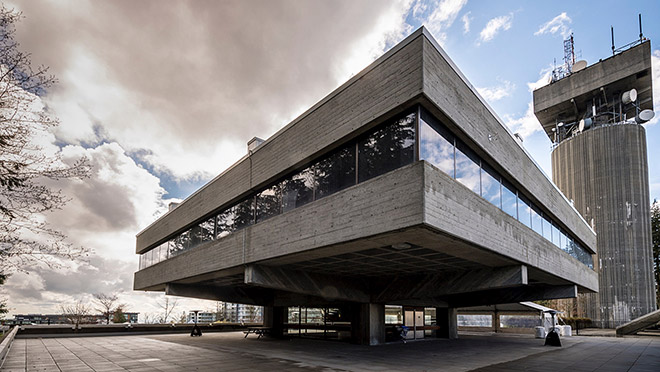BC Hydro helps SFU supercomputer keep its cool

Efficiencies at world-class data centre save enough energy to power 160 B.C. homes
Where once there was a BC Hydro transmission control centre atop Burnaby Mountain, there's now a data-crunching academic supercomputer whose list of clients includes the big brains at the CERN super collider in Switzerland.
Simon Fraser University's Cedar supercomputer is the most powerful of its kind in Canada, and it comes with some impressive green credentials.
"It's one of the most energy-efficient data centres in North America, and in the world for that matter," says former BC Hydro media spokesperson Geoff Hastings, now a CTV news anchor in Edmonton. "It's an intellectual juggernaut that really puts SFU and the Lower Mainland on the map when it comes to research computing. And it's an opportunity to really advance our civilization in a lot of ways."
As we advance, we also find ways to get energy efficient. Working with BC Hydro's New Construction Program, SFU was able to renovate an existing building with a heating and cooling system to better cope with the enormous heat that computer servers produce. Naturally, that generates some interesting math. Most data centres use between 1.4 and two times as much energy cooling the facilities as they use on the actual computing, but Cedar's efficiency brings that ratio down to 1.07.
What does that really mean? To BC Hydro key account manager Ron Mastromonaco, it's about the 1.8 gigawatts in annual electricity savings the efficiencies produce. That's equivalent to powering 160 B.C. homes a year.
Mastromonaco says the Cedar project is just the latest in a series of energy efficiency collaborations between BC Hydro and SFU, which employs a full-time energy manager as part of an aggressive sustainability mandate. And it all makes him particularly proud, as he's an SFU graduate who played on the school's soccer team in the 1980s.
"The beauty of working in the university sector is that these institutions have some flexibility to take on a little bit more, what I'd call, a living lab focus," says Mastromonaco. "They want to learn, and they want their students to learn, and they'll sometimes try some things that aren't as tried and true."
Canada's research community doing backflips over addition of 'petaflops'
Cedar is designed to run a variety of scientific workloads in fields ranging from medicine and green energy technology to artificial intelligence. To do the job, it employs more than 900 Dell EMC™ PowerEdge™ C4130 and C6320 servers, 27,000 Intel® Xeon® processor cores, and an astounding 11.4 petabytes of storage and 3.6 petaflops of performance.
A petabyte is 1024 terabytes, or a million gigabytes. A petaflop is the ability of a computer to perform one quadrillion "floating point operations per second" (FLOPS). For perspective, the world's fastest supercomputer, The Titan located in Oak Ridge, Tennessee, is capable of 20 petaflops.
In Canada alone, more than 10,000 researchers spread across 70-plus different institutions rely on Cedar and four other Canadian supercomputers for heavy lifting. Twenty-seven data centres and 50 aging legacy systems across Canada are being consolidated into Cedar and five other data centres, reducing energy use while increasing the network's aggregate performance from two to 12 petaflops.
Compute Canada is leading the transformation of Canada's national computing platform. The initiative is propelled by $75 million in funding from the Canada Foundation for Innovation, along with funding from provincial and industry partners. After supercomputers were also built at the University of Victoria, Waterloo, and the University of Toronto, the fifth in the network came online last spring at Montreal's École de Technologie Supérieure in Montreal. It's called Béluga.